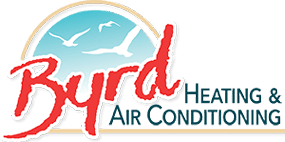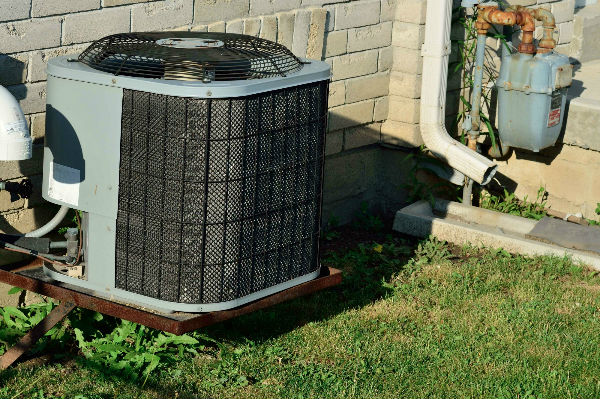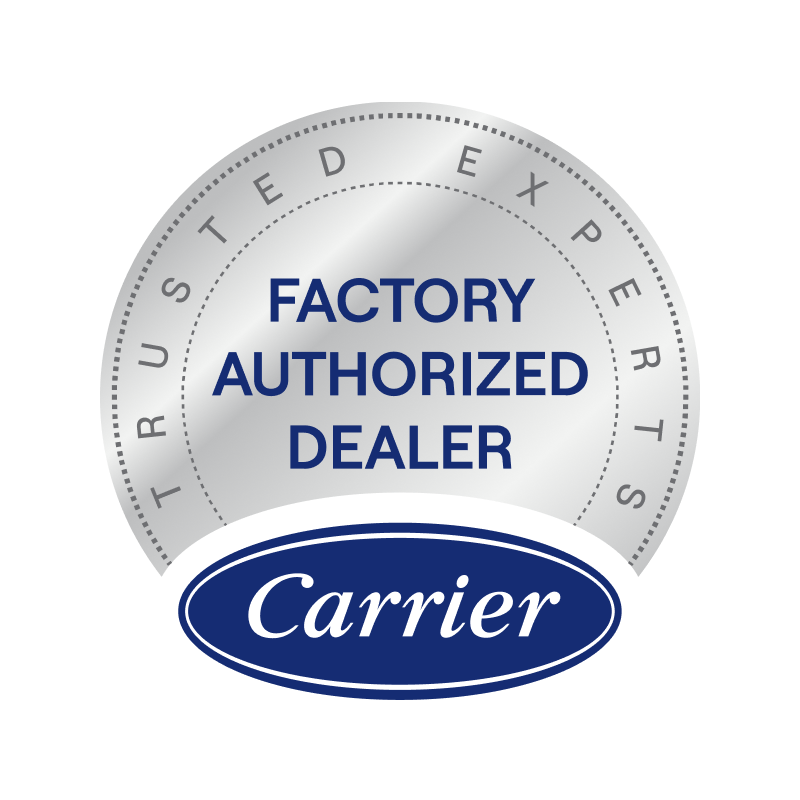Troubleshooting a frozen evaporator coil in your Savannah-area home’s central air conditioner just might get the cool air flowing again. More likely it will help you take immediate steps necessary to prevent more damage while you arrange for professional HVAC service to repair the problem. What’s definitely not recommended is continuing to operate the system and hoping the malfunction will simply resolve itself. Irreparable harm to expensive components like the compressor or blower or even water damage to your home could be result.
Why an Evaporator Coil Freezes
The first concept to understand while troubleshooting a frozen evaporator coil is that the coil is supposed to be cold but not freezing. In a properly functioning system, the evaporator circulates refrigerant vapor at about 40 degrees — the optimum temperature to extract heat from the airflow passing through the coil but never frigid enough to produce ice.
The presence of ice on the coil tends to trigger formation of still more ice until the entire coil may become encased in a block of ice. Damage may occur as the blower fan strains to pull air through the ice-obstructed coil, often overheating, or the compressor is dangerously overstressed as the A/C runs continuously, never cycling off.
Eventually, overload protections may shut down the system or a circuit breaker may trip. What follows next may be more headaches, however, as the oversized block of coil ice rapidly melts. Gallons of water may spill outside the air handler, soaking structural components of the house or leaking through a ceiling.
What You Can Do
Troubleshooting a frozen evaporator coil can be accomplished in a limited way by a handy homeowner with average DIY skills. Most repairs for this problem will require qualified HVAC service. If your evaporator coil ices up, here’s how to get the process started:
- First turn off the A/C at the thermostat to minimize further damage. Turn the fan switch to “fan only” to blow warm air over the coils and hasten melting. If ice accumulation on the coil extends beyond the dimensions of the condensate drip pan beneath the air handler, be ready with containers to catch the dripping water and prevent water damage as the ice melts.
- Next, check the air filter. Low system airflow is one cause of coil icing, and a clogged filter definitely reduces airflow. When system airflow drops below specs, refrigerant circulating through the coil can’t extract sufficient heat energy. Refrigerant temperature plunges into the range below 32 degrees. As the coil continues to condense water, ice inevitably forms on freezing coil surfaces.
- If the filter appears extremely dirty or clogged, install a new filter. Wait for the ice to melt off the coil, then restart the system. If icing recurs, shut down the system and call in professional help.
- Another possible reason for low or no airflow could be an extremely dirty blower or malfunctioning blower fan. If you don’t feel airflow when you activate the “fan only” switch at the thermostat, the blower drive belt may be broken or the motor may be defective. Further diagnosis and repair by an experienced service tech is indicated.
What You Can’t Do
Dirt or dust accumulation on coil surfaces also inhibits heat transfer, causing the coil to run too cold and freeze. Most evaporator coils are sealed and not a good project for do-it-yourself methods. Coil inspection and cleaning is a standard part of regular annual maintenance by an HVAC service provider.
Low refrigerant level in the system frequently causes coil icing. As the volume of circulating refrigerant declines below specifications, refrigerant temperature initially drops below freezing. Air conditioners don’t use refrigerant like a high-mileage car consumes oil. Low refrigerant usually indicates a leak in the system that must be tracked down by a professional utilizing leak detection equipment, then properly sealed. Simply topping up a low refrigerant level by adding more without pinpointing and fixing the leak is not a competent repair.
For more information troubleshooting a frozen evaporator coil, check out Byrd Heating and Air Conditioning A/C service solutions, or call 912-373-8447.
Image via Wikimedia Commons


